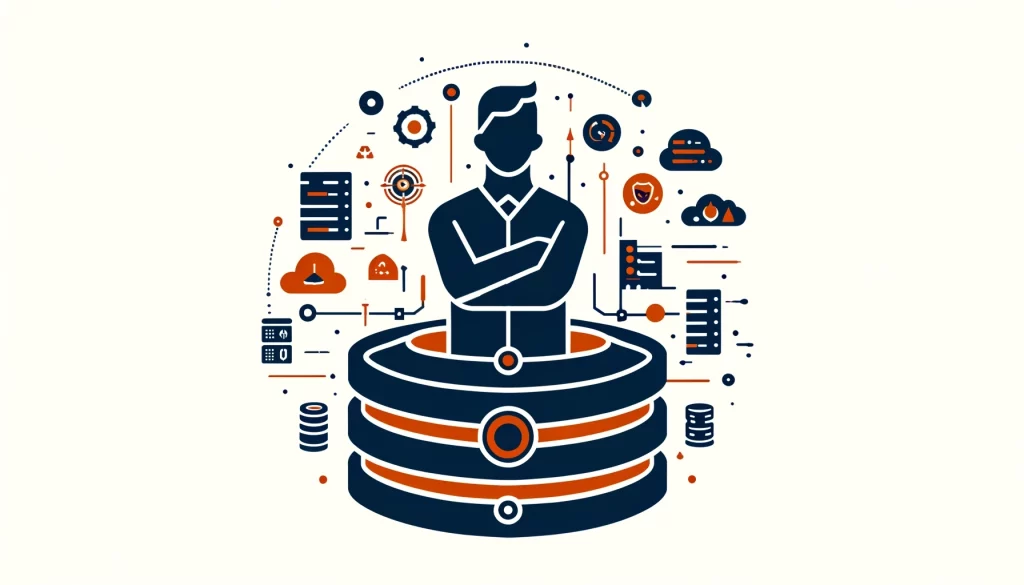
Data Steward

Today, organizations need good data to make smart decisions and succeed in business. Data steward plays a crucial role in managing and protecting data effectively within the organization. These professionals are responsible for overseeing the entire data lifecycle, from acquisition and storage to analyzing and application. Their expertise and dedication are essential for maintaining the accuracy, consistency, and compliance of an organization’s data assets.
Data stewards also ensure that data is accessible to the right people while maintaining privacy and security standards. They collaborate with different teams to enforce data governance policies, making sure that data is used responsibly and meets regulatory requirements.
Understanding the Role of Data Steward
Data stewards are professionals who work within an organization. They are responsible for overseeing the quality, accuracy, and proper use of data assets. Data stewards collaborate with various teams, such as data engineers, analysts, and business stakeholders. Together, they establish and enforce data governance policies and standards.
The main objective of data stewardship is to ensure that data is reliable, consistent, and compliant with relevant regulations. Data stewards act as guardians of an organization’s data. They ensure that all stakeholders can trust the data to be suitable for its purpose.
Data stewardships possess a unique combination of technical expertise, business acumen, and communication skills. They understand the intricacies of data management and are well-versed in the latest technologies and best practices. At the same time, they have a deep understanding of the business context and the strategic goals of the organization.
This helps them understand both the technical and business sides of data management. They ensure that the data is accurate, relevant, and valuable to the organization.
Key Responsibilities of Data Steward
Defining Data Assets
Data stewards are responsible for identifying and defining the data assets within their domain. They collaborate with business experts to comprehend the meaning and context of data elements. They ensure that there are no conflicts or ambiguities in data definitions.
Establishing Processes and Procedures
They develop and implement processes and procedures to monitor adherence to data governance policies and regulations. This includes establishing data quality standards, defining data usage guidelines, and creating workflows to ensure consistent data handling across the organization.
Optimizing Workflows and Communication
Data stewards play a key role in optimizing data-related workflows and facilitating effective communication among stakeholders. They collaborate with various teams to streamline data processes, eliminate barriers, and ensure smooth data flow across the organization.
Supporting Data Consumers
Data stewards act as advocates for data consumers, providing guidance and support on how to effectively use data assets. They give advice, help with understanding data, and encourage users to make smart choices using trustworthy information. They are responsible for promoting data literacy and fostering a data-driven mindset within the organization.
Ensuring Compliance and Security
Data stewards ensure that they handle data assets according to relevant data protection regulations. These regulations include GDPR and CCPA.
The Evolving Role of Data Steward
As businesses collect more data, managing it properly becomes increasingly complex and crucial. They must stay up to date with the latest data technologies, industry best practices, and regulatory requirements. They are at the forefront of driving data democratization and fostering a data-literate workforce.
Data stewards help organizations use data to make decisions and improve efficiency. Data stewards are strong supporters of using data to make decisions in an organization. They actively promote the use of insights gained from data. Data stewards encourage using these insights to guide strategic choices and improve operational outcomes.
As organizations embark on their digital transformation journeys, the role of data stewardships becomes even more critical. They are the key enablers of data-driven digital initiatives, such as artificial intelligence, machine learning, and predictive analytics. They ensure that the data powering these initiatives is of the highest quality, reliability, and relevance.
Conclusion
Akin to superheroes in the realm of data management, data stewards work tirelessly to ensure data quality, safeguard information, and promote its proper utilization. They work hard to make sure data is good quality, safe, and used correctly. Their role is multifaceted, encompassing data definition, quality assurance, compliance, and user support.
Companies are using data more to make decisions and generate new ideas. This makes data stewardship a crucial role. Data stewardship is becoming increasingly important.
Investing in skilled data stewards is important. It empowers them to lead data governance initiatives. This allows organizations to unlock the true value of their data assets.
Data stewards are the enablers of data-driven transformation. They help organizations navigate the complex data landscape. Data stewards also help harness the power of data to drive business success.
Data stewardships will play an increasingly important role in the age of vast amounts of data and digital transformation. As data becomes an increasingly critical asset, organizations must prioritize data stewardship and recognize the vital contributions of these professionals.
Organizations can set a strong foundation for success by creating a culture of data management. This involves giving people the responsibility to oversee data. This approach ensures that the organization effectively utilizes and manages data. Ultimately, it can lead to improved decision-making and overall performance.
Organizations that prioritize data stewardship and invest in robust data governance practices will thrive in the future. With the guidance and expertise of data stewardships, organizations can navigate the complexities of the data landscape with confidence.
They can transform raw data into actionable insights that drive business growth and success. Data stewards are important for unlocking the full potential of data. They also help shape a future where organizations can succeed with data-driven strategies.
